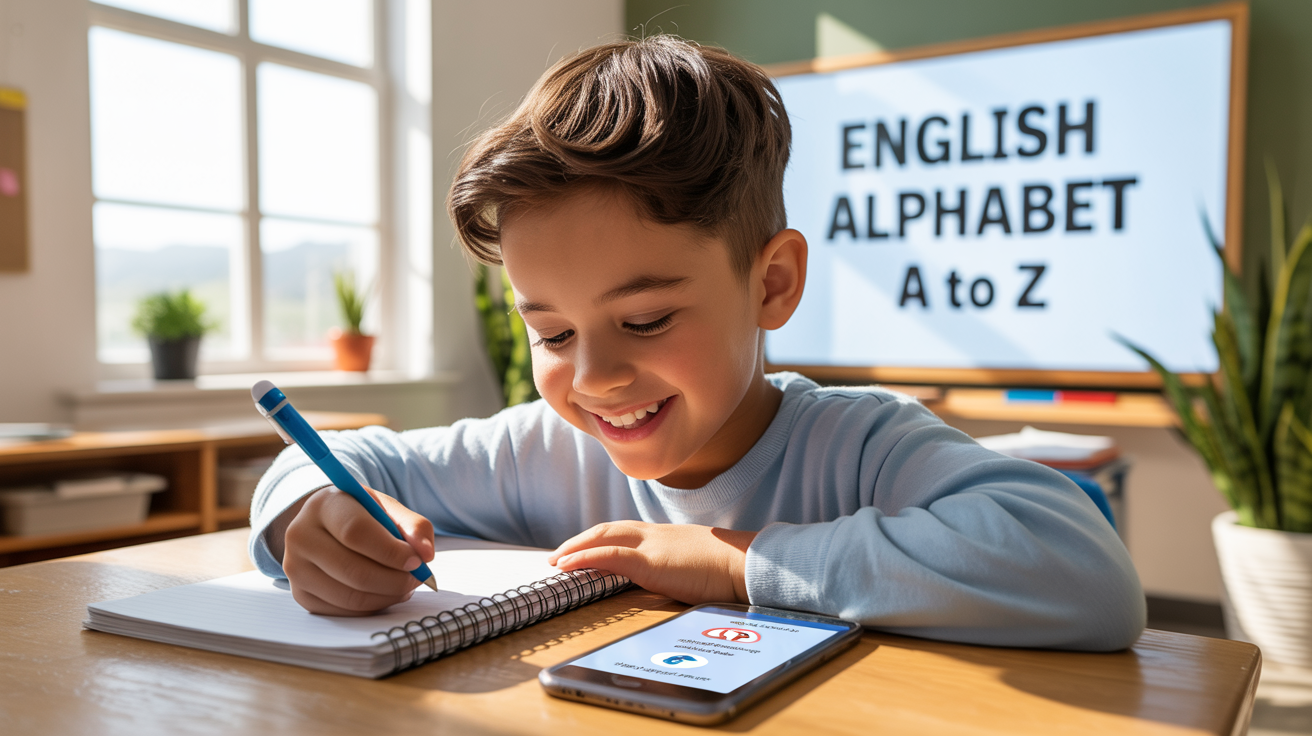Introduction
English is one of the most spoken languages in the world. It opens doors to many opportunities — in work, education, and travel. For many beginners, learning English can feel difficult at the start. But don’t worry! This guide is written in simple English, just for you. Whether you want to learn English for school, work, or fun, this article will help you take the first steps. Let’s begin your journey to speak and understand English.
1. Understand Your Purpose for Learning English
Before you start learning, ask yourself: Why do I want to learn English?
Knowing your reason will keep you strong when learning becomes hard.
Here are some common reasons:
- To get a better job
- To travel and talk with people from other countries
- To pass an English test
- To study abroad
- To enjoy English movies and books
Write your goal on a piece of paper. Put it on your wall. When you feel tired, read it again. This will help you remember why you started.
2. Learn the English Alphabet and Sounds
The English alphabet has 26 letters. Each letter has a sound. Learn the letters first.
Start with these steps:
- Say the alphabet out loud every day: A, B, C…Z
- Watch videos on YouTube that teach the alphabet
- Practice writing the letters in your notebook
After learning the letters, learn their sounds. For example:
- “A” in “apple”
- “B” in “ball”
- “C” in “cat”
When you know the sounds, you can start reading simple words.
3. Start with Common Words and Simple Phrases
Begin with everyday English — words you hear and use daily.
Learn basic words like:
- Hello, Goodbye
- Yes, No
- Thank you, Please
- I, You, He, She
Then, learn useful phrases:
- What is your name?
- My name is Sara.
- How are you?
- I’m fine, thank you.
Use flashcards or mobile apps to practice. Review 10 new words every day.
4. Practice Speaking from Day One
Many students wait too long to start speaking. You don’t need to be perfect — just speak.
Tips to start speaking:
- Speak in front of a mirror
- Repeat after videos
- Talk with a friend who is also learning
- Use voice-recording apps and listen to yourself
Say small sentences like:
- I am a student.
- She is happy.
- We are in the room.
The more you speak, the more confident you become.
5. Make English Part of Your Daily Life
Use English every day. You can’t learn a language once a week.
Ideas to use English daily:
- Change your phone’s language to English
- Label things in your room (e.g., “door,” “table”)
- Write your shopping list in English
- Think in English (e.g., “I am brushing my teeth”)
Learning is faster when English becomes part of your world.
6. Use Technology and Language Apps
Apps can make learning fun and easy.
Try these apps:
- Duolingo – For vocabulary and grammar
- Hello English – For speaking and practice
- BBC Learning English – For videos and news
- Tandem or HelloTalk – To talk with English learners or native speakers
Spend 15–30 minutes a day using these tools. Consistency is the key.
7. Focus on Listening Skills
Listening helps you understand how English sounds in real life.
Try these listening activities:
- Listen to beginner podcasts like “The English We Speak”
- Watch kids’ shows or cartoons in English
- Use subtitles first, then try without subtitles
- Listen to English songs and read the lyrics
The more you listen, the better your understanding becomes.
8. Practice Reading Every Day
Reading helps you learn grammar and new words.
Start with:
- Children’s books or stories
- News websites for learners like “News in Levels”
- Graded readers (books made for English students)
- Your favorite topics (e.g., animals, sports, history)
Read aloud to improve pronunciation. Try to understand the main idea, not every word.
9. Begin Writing Simple Sentences
Writing is also an important skill. Start with short, easy sentences.
Daily writing practice ideas:
- Write 5 sentences about your day
- Keep a small English diary
- Use your new words in sentences
- Try writing a short email to a friend (even if they don’t read it)
Use grammar-check tools like Grammarly to improve your writing.
10. Find a Study Partner or Join a Group
Learning with others is fun and helpful.
Ways to find partners:
- Join English groups on Facebook
- Use language exchange apps
- Ask a friend or classmate to study together
- Join free English Zoom classes or WhatsApp groups
You can speak, ask questions, and support each other.
11. Don’t Be Afraid of Mistakes
Mistakes are part of learning. Even native speakers make mistakes.
Remember:
- It’s okay to forget a word
- It’s okay to say something wrong
- It’s okay to feel nervous
Mistakes help you grow. Learn from them and keep going.
12. Track Your Progress and Stay Motivated
Look back and see how much you have learned. This will make you feel proud.
Track your progress by:
- Keeping a word journal
- Recording yourself every month
- Testing your skills using apps
- Comparing your writing from before and now
Celebrate small wins. For example:
- “I learned 100 words!”
- “I spoke English for 10 minutes!”
- “I watched a full English movie!”
Reward yourself. Stay motivated and don’t stop.
Conclusion
You now know the steps to begin learning English. Start with the alphabet, learn basic words, speak daily, and use tools and friends to support your journey. Remember, you don’t have to be perfect — just be consistent. English is a beautiful language, and with daily effort, you will improve. Take the first step today, and one day, you will speak with confidence.




